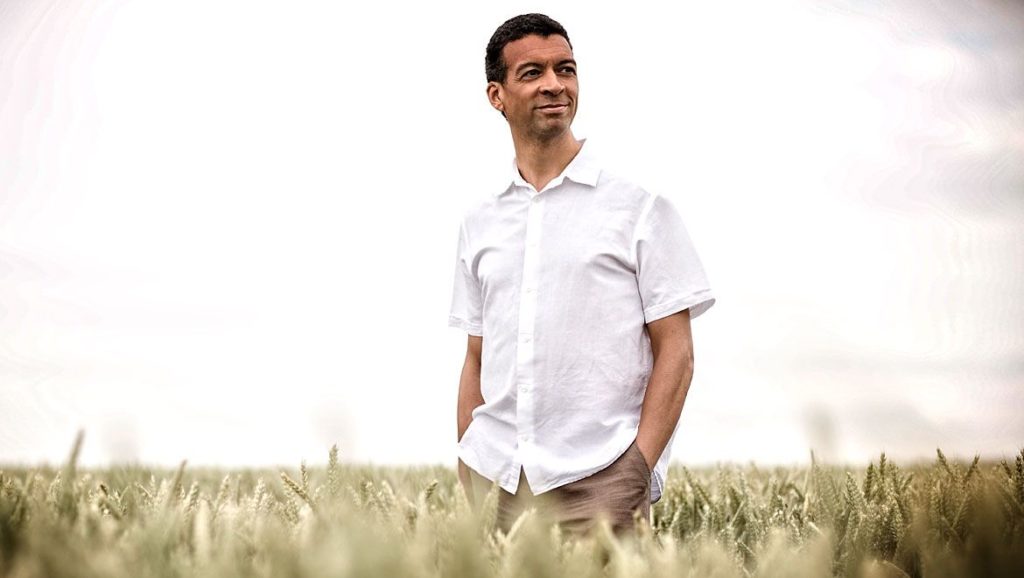
Baritone Roderick Williams
THE evening belonged to Schubert, but not altogether as you might have expected him.
With his irrepressible desire to push boundaries, baritone Roderick Williams – who is also a composer in his own right – has rewritten the piano accompaniment to Schubert’s Die schöne Müllerin, for string quartet. It was an audacious move, which opened up new angles on this much-loved song-cycle.
There is no denying that there were minuses as well as pluses in this approach. Right from the start the piano’s percussiveness was absent. The mill-wheels barely rattled, the stones did not resound and the stream was at times barely a ripple compared to Schubert’s full-blown mill race: the piano does water better than strings.
And yet. There is no decay in string sound. So whenever Schubert put a separate melody alongside the singer’s line, the two voices were generally better balanced. There is also more physical drama in watching four string players in action than one pianist can deliver: the Carduccis certainly let you know when they need to be heard. The tone quality from each instrument is more variegated and thus at times easier to discern.
A few samples must suffice to demonstrate the subtlety of Williams’s orchestration. Where the piano repeats the music for each verse, Williams often writes something different. Thus in ‘Morning Greeting’ we had a touch of tremolo illustrating the little flowers shrinking from the sun, this a song in which voice and strings combined especially well. He had largely omitted the first violin at the start of ‘Thanksgiving to the Brook’, giving a darker texture.
In ‘Curiosity’ (No 6), the pauses between phrases were telling. The word ‘Ja’ here was forceful, but led into a prayerful final verse, where the sustaining power of the strings made the mood altogether more wistful.

Carducci Quartet
The following song, ‘Impatience’ benefited from very light strings, Mendelssohn-style, but the tempo was too fast to allow quite enough breadth on ‘Dein ist mein Herz’.
In the central verses of ‘Shower Of Tears’ (No 10), the legato lines of both voice and strings intermingled delightfully. At the end of ‘Mine!’, Williams stood for effect, where otherwise he remained seated on a piano stool; the quartet had lent urgency to the song.
Staccato strings heightened the vocal anger behind ‘The Huntsman’ (No 14) and, with resentment building, the dark atmosphere of ‘The Good Colour’ made it quite clear that the game was up for our lovelorn lad.
So Williams ended ‘The Wicked Colour’ boldly as the lad said farewell, after which viola and cello pizzicato alone opened ‘Dry Flowers’, typifying the empty moment. Yet that song finished in a blaze, each of the repetitions of the last stanza more intense. The dialogue between lad and (seductive) brook ended with a lovely postlude, before the touching final ‘goodnight’.
It was a treat to hear this version, not least for the way it uncovered new vistas. It was sung in German and, of course, in lower keys than the original tenor. But Williams was immensely alive to Schubert’s nuances – and the Carduccis, to their credit, were with him every step of the way.
They had opened the evening with Schubert’s Tenth Quartet, D.87 in E flat, dating from November 1813, with pronounced shading, especially in the fast outer movements. Some of the accompaniment figures from the 16-year-old composer were a touch rudimentary, but his melodic gift was already blossoming here.
Review by Martin Dreyer
